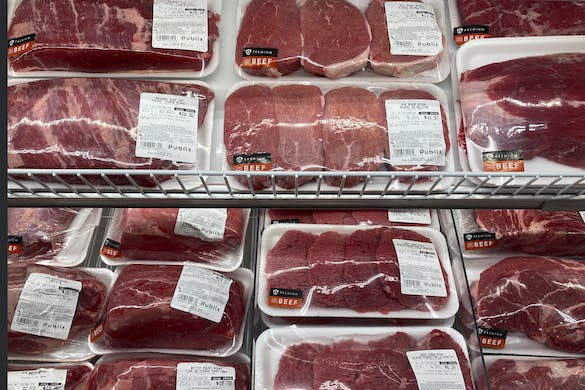
Florida Freeze Prompts Roundup of Cold-Stunned Iguanas as Thousands Fall From Trees
By LUKE FUNK
|Governors of states passing the bans say they are working to ‘save our beef.’

Already have a subscription? Sign in to continue reading
$0.01/day for 60 days
Cancel anytime
By continuing you agree to our Privacy Policy and Terms of Service.
By THE NEW YORK SUN
|